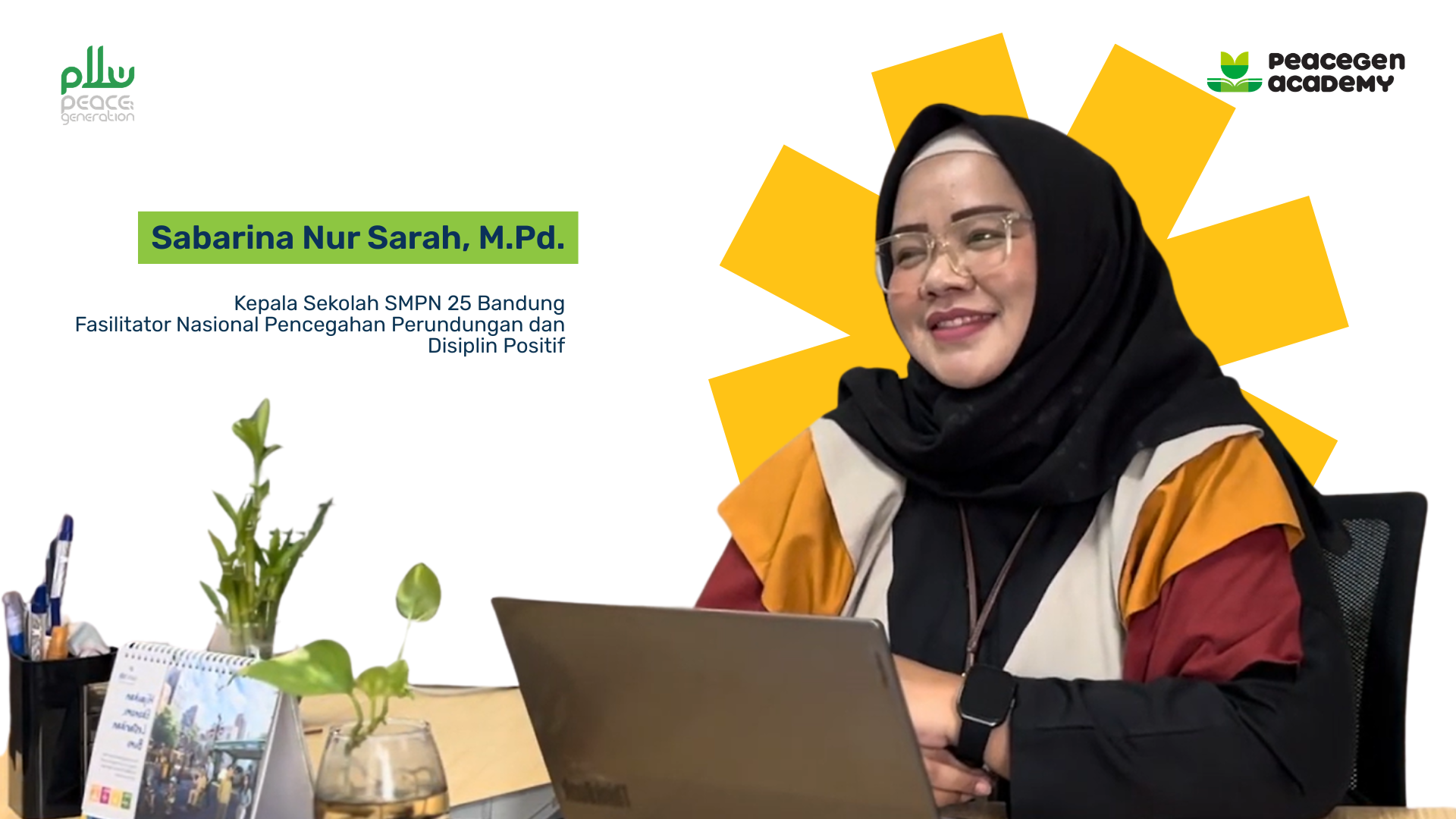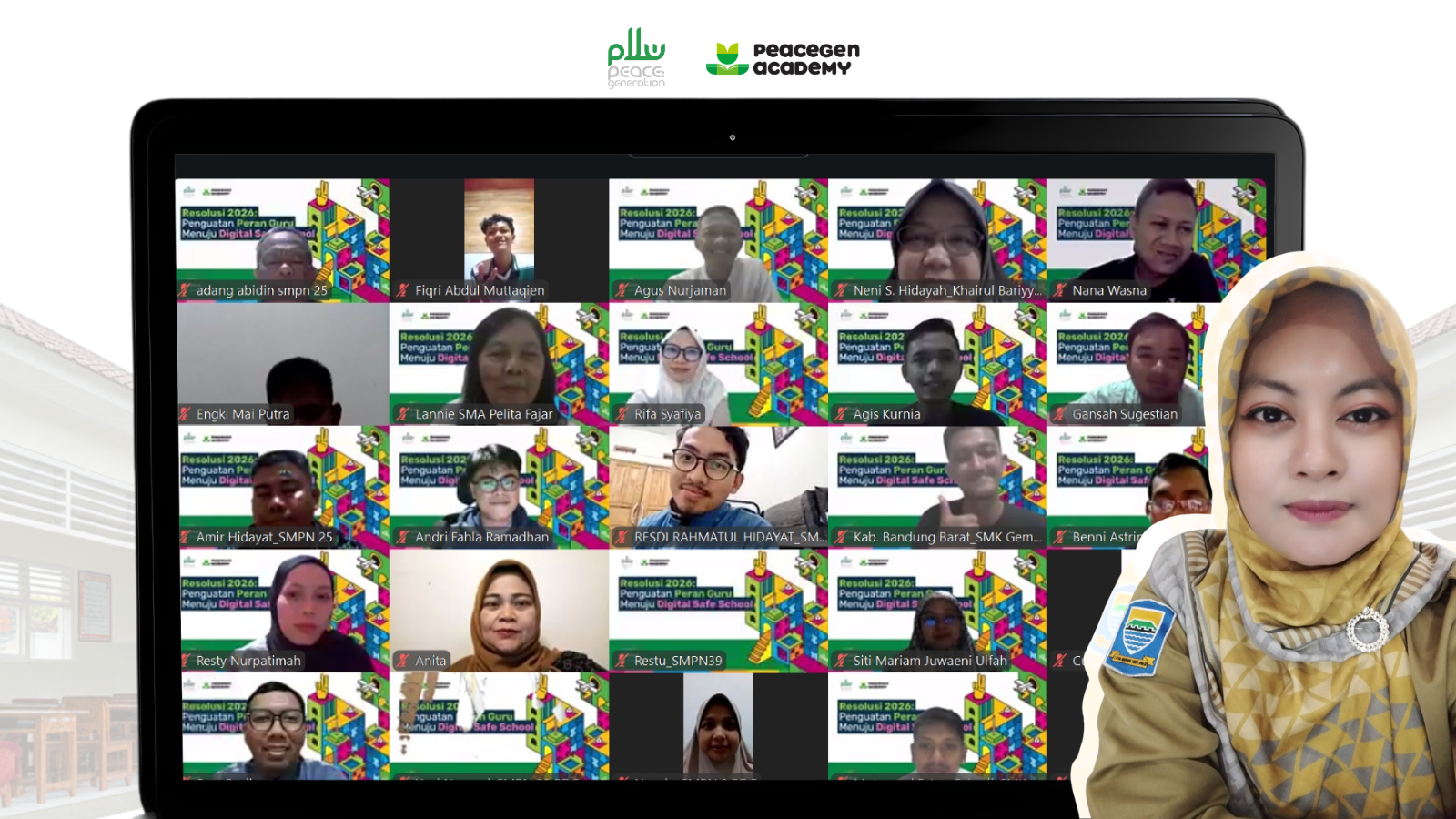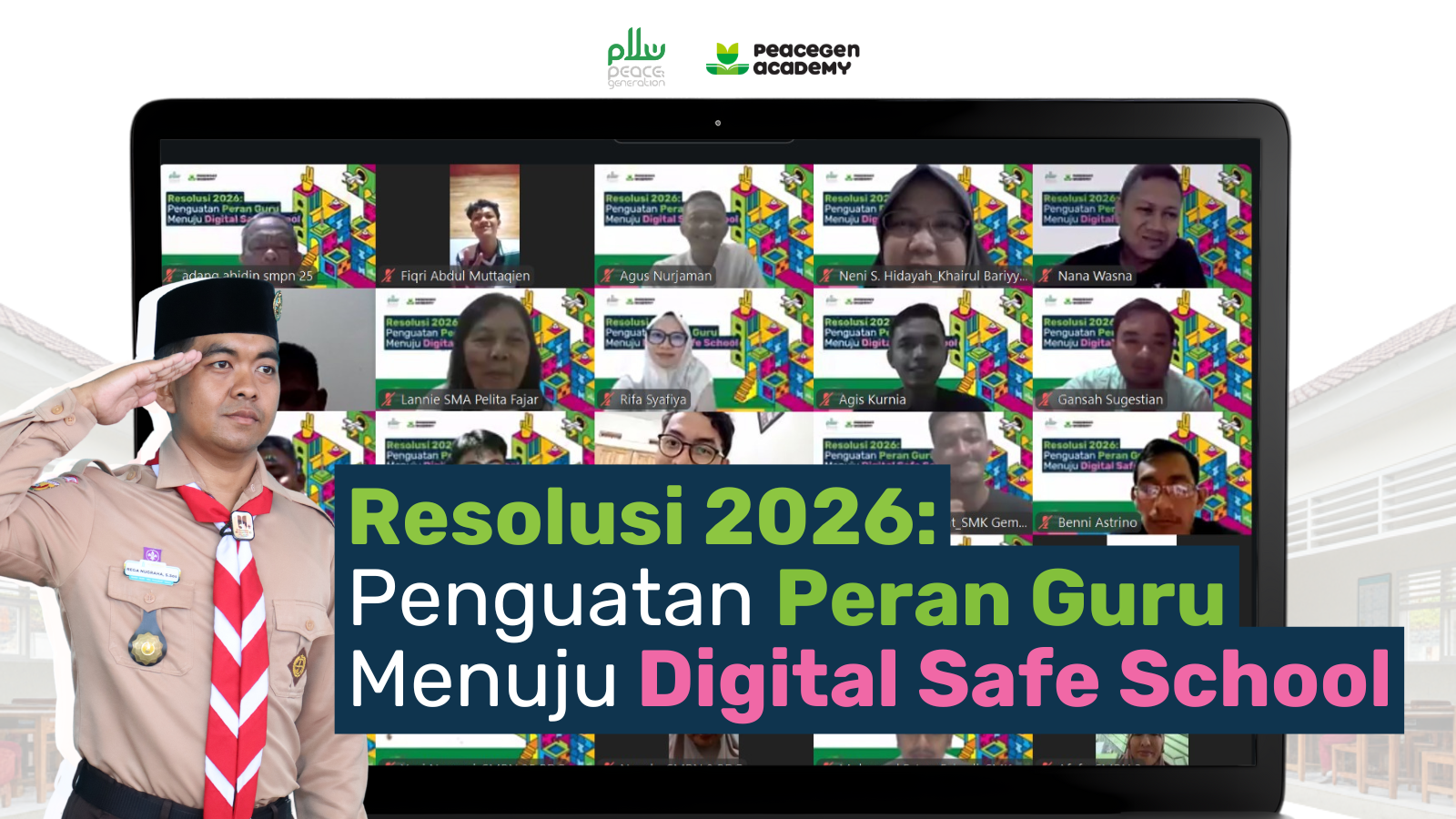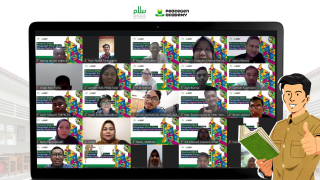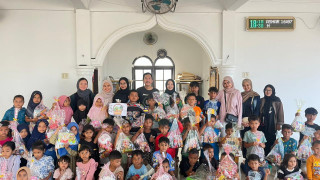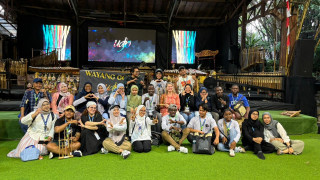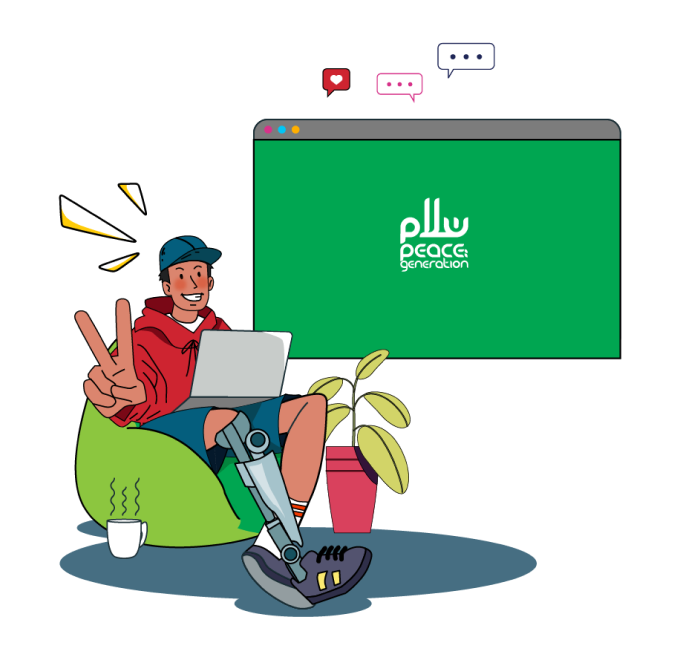5 Challenges for Youth Movements for Peace in Southeast Asia

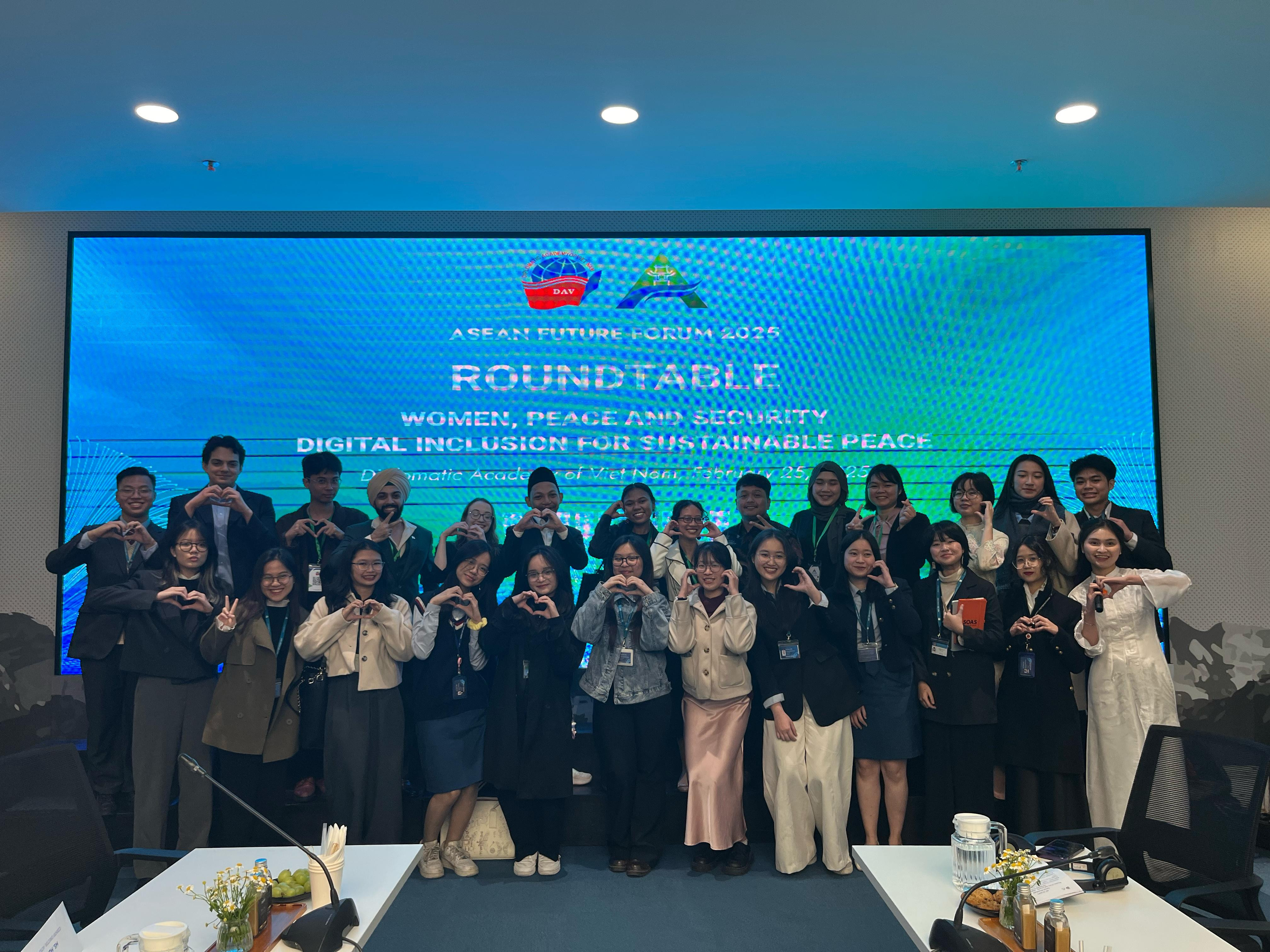
Reflection from Jeremia Manurung from PeaceGeneration Indonesia
Edited by: Kevin Adhitya
21/03/2025
Indonesia has 68 million young people (18-30 years old) or a quarter of the population. Embodying all the potential of these young people will make Indonesia develop even faster in all fields. For that, increasing the capacity of young people is the most essential thing that needs to be done.
In this regard, ASEAN also involves youth organisations, including PeaceGen, in the ASEAN-UK Youth Peace Security (YPS) Forum in Jakarta and the ASEAN Future Forum (AFF) 2025 in Hanoi, Vietnam to develop ways to increase youth capacity that are aligned with the cultural and social characteristics of the Southeast Asian region.
Baca juga: Ms. Sarah's Efforts to Build Peace Among Multicultural Students with PeaceGen
How to?
Learn from Friends in Vietnam about Starting to Change from Yourself!
First, increasing the capacity of young people can start with themselves. This aligns with the thoughts of the Indonesian movement figure Tan Malaka, who believes education aims to form humans with sharp minds, refined feelings, and strong wills.
The argument was reaffirmed by the Indonesian Ambassador to Vietnam, Mr. Deny Abdi. We saw that the spirit and determination of young people in Vietnam had grown from an early age. Many of them already have a clear direction and purpose in life and show maturity in their attitudes. This is in stark contrast to some teenagers in Indonesia who are still trapped in destructive behavior such as brawls, laziness, or even confusion in determining the direction of their lives.
Not only that, we also listened to a fascinating story of change from one of the speakers at the ASEAN-UK YPS Forum, Hieu Minh Ngo, who is also a former hacker from Vietnam. Hieu admitted that he had once gone astray, but eventually realised his mistake and decided to change. He hopes that more young people can find a deeper meaning in life, not just chasing false pride or being obsessed with material things.
What should be honed fundamentally?
Out of the most profound inner space, we will discuss the essential abilities that every individual should have. Two of them are critical thinking and empathy. Both are crucial foundations in forming a person who is morally and socially healthy and ready to improve complex skills and abilities.
This ability is in line with the ASEAN-UK YPS material related to digital crime, one of the crucial issues experienced by the young generation of Southeast Asia. Indeed, critical thinking skills play an essential role in eradicating digital crime. Many illegal acts can be avoided if someone is willing to think more clearly and consider the consequences of their actions.
We discussed this in a small group with Thuy Thi Thu Dinh from Cybercrime Operations Interpol, who believes that the ability to pause, think, and draw conclusions consciously will prevent people from becoming victims or perpetrators of crime.
On the other hand, the ability to feel—to truly understand the feelings of others—or what we call empathy, can be a mighty moral bulwark. Someone who can feel the impact of their actions on others is less likely to hurt or harm others.
Essential skills for young people for the future
When someone knows themselves well, dares to make decisions for themselves, and has basic skills such as critical thinking and empathy, the path to increasing their capacity in more technical aspects, such as hard skills—will be more open and effective. In today's era, mastery of advanced technology and science is no longer just an option but a necessity.
From the various conversations and discussions that have developed in the ASEAN-UK YPS and AFF, it is clear that the ability to understand and utilise technologies such as artificial intelligence (AI), quantum computing, digital literacy, big data, and the like, will significantly determine the effectiveness and efficiency of our work in the future. Integrating technology is not just about speed but also about how we can stay relevant and competitive in a constantly changing world.
Indonesia’s Unique Value Proposition
Indonesia's unique strength is its humanity-centered approach. Indonesia still has the potential to use its demographic bonus—a large, productive-age population—as development capital. However, this potential is not meaningful enough if only seen in terms of numbers. One interesting thing is that Indonesia's social and cultural character allows more humane and creative approaches.
We saw several initiatives in Jakarta that reflected this.
For example:
-
Mas Noor Huda Ismail, the Regional Expert on Preventing Violent Extremism, prioritises a psychological approach in deradicalisation.
-
Kang Irfan Amali, the Director of PeaceGeneration Indonesia, utilises creative media such as board games, virtual reality, and interactive modules to teach the values of peace in a fun and down-to-earth way.
-
Mas Danar Juniarto, the Founder of PIKT Demokrasi, weaves the power of storytelling in the digital space to bring to life inspiring narratives about democracy.
Indonesian society's relatively less rigid lifestyle, compared to Singapore or Vietnam, allows imagination, empathy, and creativity to grow. This uniqueness and strength should be nurtured and empowered.
We also remember a compliment from a Malaysian musician in an Instagram post that resonated with the importance of creativity in society. He said that music lovers in Indonesia can dive into and interpret music with a different depth, even more emotional than listeners in his own country.
An interesting point emerged in a discussion with Mr. Deny Abdi: he had heard from one of Hyundai's top brass. According to him, in the long term, Indonesia's approach that provides space for freedom for civil society organisations will be superior to a top-down and centralistic approach.
Peacebuilding in ASEAN - Bringing Inclusive Participation to Life
The Youth, Peace, and Security (YPS) and Women, Peace, and Security (WPS) agendas are not only UN agendas but are part of the global humanitarian agenda. Encouraging inclusive participation from various elements of society—including youth and women—is no longer an option, but a necessity. Civil society organisations (CSOs) have often adopted the YPS and WPS agendas. Still, a significant challenge remains: ensuring their participation is also represented in decision-making at high levels in government and non-governmental organisations.
Various studies have shown that the return on investment of YPS and WPS programs is very significant. For every dollar invested, the social and economic impact generated can reach five to twenty dollars. This means that ignoring the role of youth and women is not only unfair but also collectively detrimental. This can be called a form of violence of exclusion.
Youth comprise about 30% of the ASEAN population, while women make up 50% of the total population. It is only natural that their involvement is guaranteed proportionally, especially in essential processes such as public policy-making. Actively involving them will enrich perspectives, strengthen approaches, and increase the holistic nature of the resulting solutions.
Baca juga: Teacher’s Story: How Rega Nugraha Prevents Digital Threats in Islamic Boarding Schools
Young people have high energy, creativity, and a spirit of innovation. They move quickly, are adaptive to the times, and are often bolder in proposing change. On the other hand, women bring a more empathetic, sensitive, and decisive approach in building humanitarian narratives. The collaboration of the two will create much-needed synergy in an increasingly complex and interconnected world.
The economic approach is one of the most effective adhesives in politics and regional peacebuilding. A more economically open ASEAN has created new dynamics in goods, services, and capital flow. In a statement at the AFF, Dato’ Anwar Ibrahim, the Prime Minister of Malaysia, conveyed how the Malaysian and Thai governments are now intensifying cross-border cooperation between Southern Thailand and Northern Malaysia. This effort aims to improve the welfare of border communities, encourage productivity, and indirectly reduce the potential for conflict.
Meanwhile, the concept of ASEAN centrality continues to be echoed in the regional peace narrative. ASEAN does not want to become a new pole of power that dominates other regions but wants to play a role as a pivot of cooperation that prioritises stability and dialogue. However, the meaning of this centrality needs to be continuously clarified.
It should not be interpreted as passive neutrality. ASEAN should not remain silent when human rights violations or oppression occur in one of its member states. The main principle must remain siding with humanitarian values . In the end, true peace is not only built from political compromise or economic integration but also from the courage to voice justice, siding with the oppressed, and the earnest participation of all elements of society, especially youth and women.
Find out more about peace education on our website, click on peacegen.id/en
